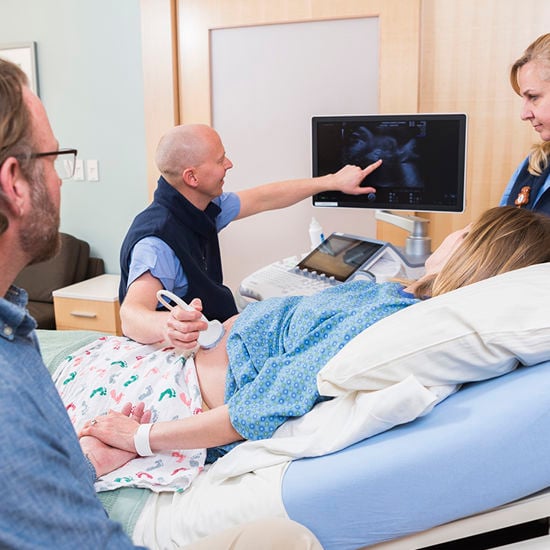- Doctors & Departments
-
Conditions & Advice
- Overview
- Conditions and Symptoms
- Symptom Checker
- Parent Resources
- The Connection Journey
- Calm A Crying Baby
- Sports Articles
- Dosage Tables
- Baby Guide
-
Your Visit
- Overview
- Prepare for Your Visit
- Your Overnight Stay
- Send a Cheer Card
- Family and Patient Resources
- Patient Cost Estimate
- Insurance and Financial Resources
- Online Bill Pay
- Medical Records
- Policies and Procedures
- We Ask Because We Care
Click to find the locations nearest youFind locations by region
See all locations -
Community
- Overview
- Addressing the Youth Mental Health Crisis
- Calendar of Events
- Child Health Advocacy
- Community Health
- Community Partners
- Corporate Relations
- Global Health
- Patient Advocacy
- Patient Stories
- Pediatric Affiliations
- Support Children’s Colorado
- Specialty Outreach Clinics
Your Support Matters
Upcoming Events
Colorado Hospitals Substance Exposed Newborn Quality Improvement Collaborative CHoSEN Conference (Hybrid)
Monday, April 29, 2024The CHoSEN Collaborative is an effort to increase consistency in...
-
Research & Innovation
- Overview
- Pediatric Clinical Trials
- Q: Pediatric Health Advances
- Discoveries and Milestones
- Training and Internships
- Academic Affiliation
- Investigator Resources
- Funding Opportunities
- Center For Innovation
- Support Our Research
- Research Areas

It starts with a Q:
For the latest cutting-edge research, innovative collaborations and remarkable discoveries in child health, read stories from across all our areas of study in Q: Advances and Answers in Pediatric Health.


Fetoscopic Laser Surgery for Twin-to-Twin Transfusion Syndrome
Advancing treatments to save lives and lifetimes.

At the Colorado Fetal Care Center, we give moms carrying high-risk multiples the best chance at a positive outcome. In our specially designed fetal operating suite, our world-class fetal surgeons perform some of the most innovative fetal therapies available today, including fetoscopic laser surgery.
What is a fetoscopy?
Fetoscopy is a minimally invasive procedure where a fetal surgeon inserts a small tool (called a fetoscope) into the uterus under ultrasound guidance. The fetoscope is a tiny camera that lets us see and access your fetus and placenta.
This approach helps minimize the complications that can occur with more invasive fetal procedures.
Fetoscopic laser surgery at the Colorado Fetal Care Center
We perform fetoscopic laser surgeries to treat and correct the life-threatening congenital conditions that affect monochorionic twin pregnancies – where identical twins (or multiples) share a placenta – such as twin-to-twin transfusion syndrome (TTTS).
When you come to the Colorado Fetal Care Center for the diagnosis and treatment of TTTS, our multidisciplinary fetal care team will perform a comprehensive evaluation to best understand your specific condition and to develop the optimal treatment plan for you and your babies.
In many cases of TTTS, we will recommend fetoscopic laser surgery. With some of the best outcomes in the nation, our maternal fetal medicine specialists (MFMs) are equipped to perform the twin transfusion syndrome treatment that your twins need.
Twin-to-twin transfusion syndrome laser surgery: fetoscopic laser ablation
What is selective fetoscopic laser photocoagulation (SFLP)
Selective fetoscopic laser photocoagulation (SFLP), also called fetoscopic selective laser ablation, is a minimally invasive procedure performed on the placenta of babies with TTTS.
Using a fetoscope, we locate the abnormal blood vessel connections on the placenta between the babies and then seal them using laser energy. The laser ablation stops the abnormal fluid exchange between the twins, hopefully halting or reversing the disease.
Which conditions are treated with SFLP?
In severe cases of twin-to-twin transfusion syndrome, laser surgery is commonly the best treatment option.
Why do I need to undergo TTTS surgery?
Fetuses diagnosed with TTTS need to undergo SFLP so that the disease and its complications can be halted or reversed.
This disease occurs because the twins share a placenta (monochorionic) and there are blood vessel connections on the placenta allowing the twins to abnormally share fluids between them. If this abnormal sharing is significant, the twins can get sick and may face severe complications, including: heart failure, early labor, brain damage and death.
TTTS laser surgery is performed to seal off the abnormal blood vessel connections, stop the harmful sharing of fluids and correct or prevent complications. In the most severe cases of twin-twin transfusion, the survival rate can be as low as 10 to 15% if left untreated.
What happens during selective fetoscopic laser photocoagulation?
Before the twin-to-twin transfusion syndrome laser surgery, an anesthesiologist places an epidural to keep you comfortable during the procedure. Once you are comfortable and pain-free we start the procedure.
We insert the fetoscope into the amniotic cavity, through a three-millimeter incision on your abdomen. The scope lets us clearly see and identify the abnormal fetal blood vessel connections that need to be ablated (closed). We then use the laser to seal these connections.
After the laser procedure is finished, we ordinarily perform an amnioreduction to remove any excess amniotic fluid. This reduction is performed through the same fetoscope.
What to expect with twin-to-twin transfusion syndrome laser surgery
When you come to the Colorado Fetal Care Center for fetoscopic laser ablation, you can expect a quality, coordinated care experience. You'll be treated by experienced, compassionate staff and a fetal surgeon who is an expert in fetal intervention.
We conduct this laser surgery in our Fetal Intervention Room where we have specialized experts and equipment necessary to help ensure the best outcomes possible. And during the procedure, one of our maternal and fetal anesthesiologists will be by your side to keep you comfortable.
You'll then stay overnight after the TTTS surgery so we can monitor you for any sign of contractions or complications.
Follow-up care for fetoscopic laser surgery procedures
When you undergo any fetal intervention at the Colorado Fetal Care Center, your care team will provide detailed postoperative care and instructions.
After a fetoscopic laser ablation for TTTS, you will stay overnight for monitoring. We ask you to stay in the Denver area for up to five days after the procedure. But after that, you'll be able to return home and resume care with your primary provider.
We are constant communication with your provider while you are in Denver and we are happy to consult and collaborate as your pregnancy continues.
What's the recovery for laser ablation?
SFLP is not ordinarily associated with a significant recovery time and there is only minimal pain experienced. We recommend decreased activity for the rest of your pregnancy given the increased risk of preterm labor and delivery after undergoing fetal surgery.
How does fetoscopic laser surgery affect my delivery?
Because laser procedures like SFLP are minimally invasive, they typically don't affect your mode of delivery. Patients that have undergone SFLP deliver, on average, earlier than those who haven't undergone a fetal procedure.
750+
TTTS patients evaluated (since 2012)
280+
Laser surgeries for TTTS performed (since 2012)
70.2%
Overall dual twin survival
Why should I choose the Colorado Fetal Care Center for laser TTTS surgery?
When it comes to treating twin-twin transfusion via fetoscopic laser ablation, success demands both expertise and precision.
Our experienced fetal surgeons focus on efficiency during the procedure. It's our goal to clearly visualize the abnormal blood vessels and treat them in a thorough but efficient manner.
We aim to complete the laser ablation in as little time as possible, as shorter procedure times are associated with a decreased risk of complication. At the Colorado Fetal Care Center, our maternal fetal medicine specialists can complete the entire TTTS surgery in less than 30 minutes, and, many times, we're able to complete the laser portion of the SFLP in less than 5 minutes.
Expert fetal surgeons at the forefront of innovation
When you come to our Center for fetoscopic laser TTTS surgery, you will be treated by dedicated TTTS specialists, including trained fetal surgeons with extensive experience performing this procedure.
With dedicated TTTS research and expertise treating this condition, we are uniquely poised to obtain a positive outcome for you and your babies.
Take a look at our most recent fetal surgery and TTTS outcomes.
Available for fetal intervention 24/7
At the Colorado Fetal Care Center, our maternal fetal medicine specialists are available 24 hours a day, 7 days a week.
With this around-the-clock care model, we're always available for immediate evaluation – ready to handle any situation or complication that may arise. Our expertise and capabilities are always there when you need them and life-saving fetal surgery, like fetoscopic laser procedures, is never out of reach.
This is crucial for a condition like TTTS where time is critical. The earlier this condition is caught, the more easily it can be treated. And the sooner we're able to intervene, the better the chance of a positive outcome.
Visit our fetal care center
Visit us to learn how we help families plan for the road ahead, how we work with your referring provider to streamline your care and how our concierge services help guide you through your pregnancy.

Stories
Zoey and Kenna
Abnormal connections between Zoey and Kenna’s blood vessels before birth threatened their health. Now, their close connection is one of the most treasured parts of their family.

Would you like a second opinion?
If you have received a prenatal diagnosis, are considering treatment options or just want to feel more confident about your treatment plan, our fetal care experts are here to help.
Request a second opinion from our Colorado Fetal Care Center



 720-777-0123
720-777-0123




